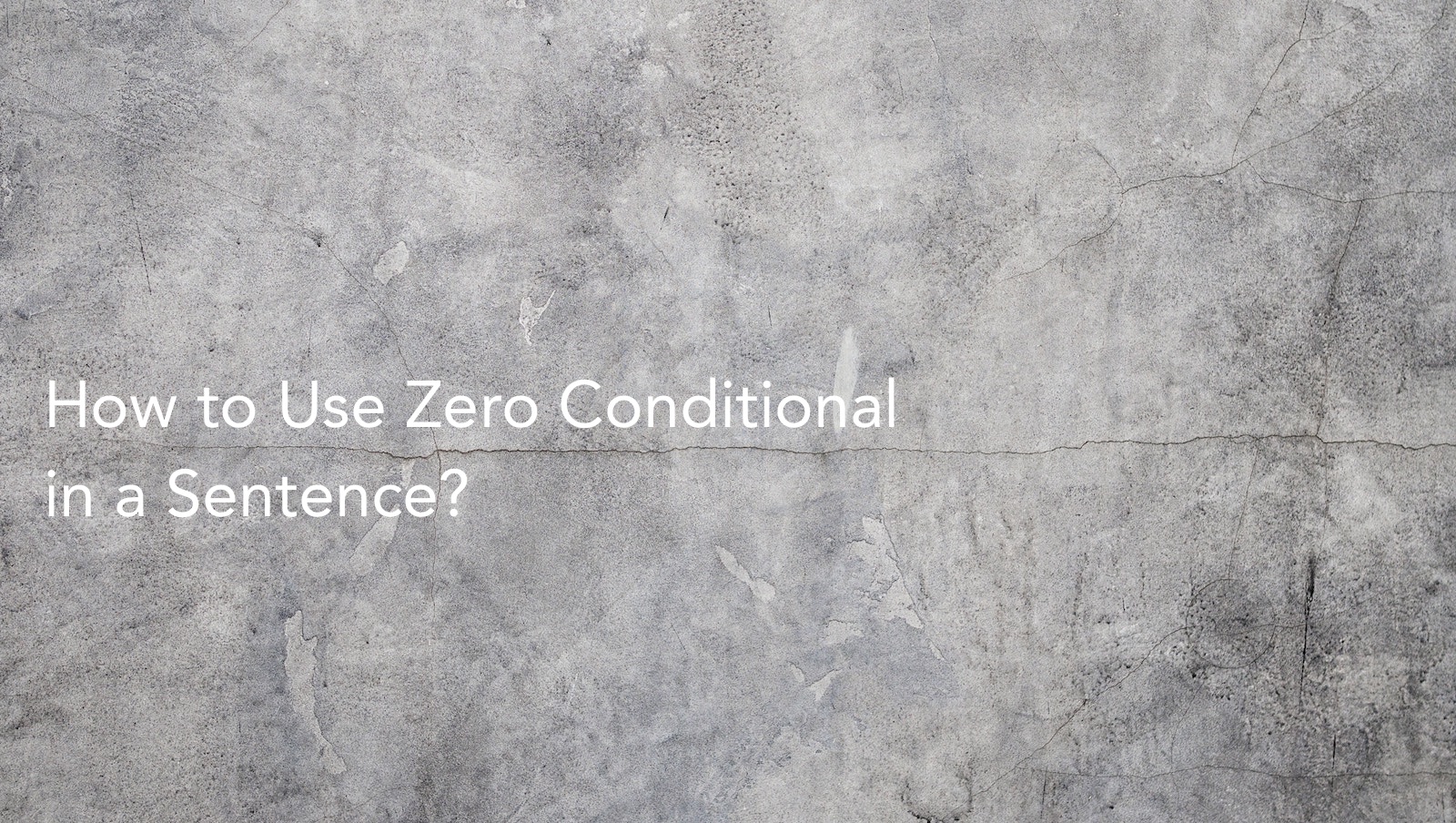How To Use Zero Conditional in a Sentence?

We use zero conditional sentences when we talk about facts or things that are generally true. Scientific facts fall in this category. For example, “When there’s too much heat, ice melts.” Other than using zero conditional to state facts about the real world, it is also used when giving instructions or a command.
Zero conditional uses “when” or “if” and must be followed by a simple present, imperative statement, or direct command. This is how a sentence is structured:
If / When + condition + result
Examples:
- When it rains, P.E. classes are held inside the school gym.
- If the professor is absent, Mr. Green takes her class.
- If city people go to the village over that hill at night, they get lost.
As you can see, you use zero conditional when you express something that always happens in this same way, or the condition always has the same result. In other words, if THIS thing happens, THAT thing happens. Note that the condition is always in the present.
The RESULT can be:
1. Present simple (stating a fact that is always happening)
If / When + simple present + simple present
- When children keep eating candies, they get bad toothaches.
- If babies are hungry, they cry.
- If you press that red button, the doorbell rings.
2. Imperative (a direct command)
If / When + simple present + imperative
- If you visit Japan, eat sushi, tempura, and soba.
- When it starts snowing, bring a scarf.
- If you arrive late to work again, you have to go to the manager and explain.
In these three examples, the results are imperative: eat certain foods, bring a scarf, AND you have to go to the manager to explain.
Another expression you can use, instead of IF and WHEN, is “UNLESS.” In a nutshell, unless means “if not” OR if something does not happen.
The sentence will look like this:
Unless + condition + result
- Unless the rain stops in an hour, there is no football practice.
- Unless students enroll in test review courses, they fail their college entrance exams.
To simplify this:
Unless (IF NOT) the rain stops in an hour, there is no football practice.
Unless (IF NOT) students enroll in review courses, they fail their college entrance exams.
You can also re-arrange your sentence this way:
result + if/ when/ unless + condition
- The teacher gets angry when her pupils dance at their tables.
- Mother gets impatient when it gets dark, and I’m not home.
- His father is upset unless he practices piano for three hours a day.
Here are helpful websites that will show you more examples:
http://www.ef.com/english-resources/english-grammar/zero-conditional/
http://www.perfect-english-grammar.com/zero-conditional.html
There are also other forms of conditional sentences, such as first conditional and second conditional, which we will discuss later on. In the meantime, you can try making your own zero conditional sentences and then let your LingualBox teacher check them.
